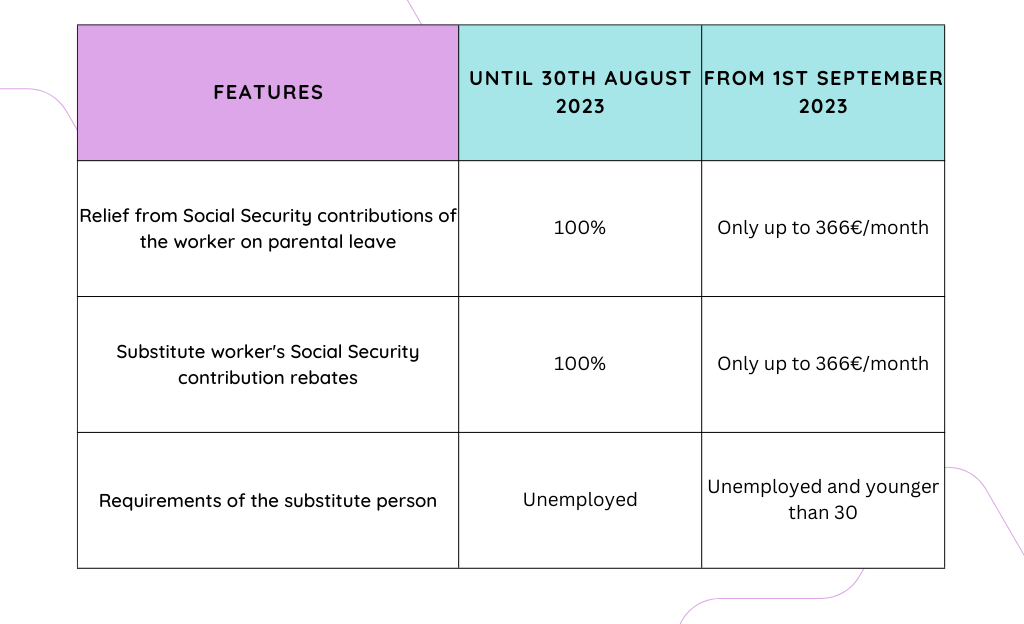
Incentives for hiring R&D&I personnel in Spain and other foreign investment incentives
Following our last post, when we talked about R&D tax incentives in Spain, we would like to introducce other advantages for innovative companies in Spain. There is a Social Security rebate for research personnel. It consists of the application of a 40% bonus on business contributions to Social Security contributions for common contingencies. It is applied immediately month to month in RNT (formerly known as TC2) and your request is voluntary.
Companies that have researchers dedicated exclusively to R&D&I (regardless of the tax classification of the project) may reduce the Social Security contributions payable by these researchers by up to 11.8% of their gross salary.
To qualify for this incentive, the following requirements must be met:
- Exclusive dedication to R&D&I (up to 15% of the time may be devoted to other tasks, such as training or dissemination activities).
- Permanent contracts and contribution groups 1 to 4.
- Binding Reasoned Report type D must be obtained when 10 or more people are subsidised for more than three months in a fiscal year.
Besides this, those companies that our certified as Innovative SME, can also applied simultaneously the R&D tax rebates.
Moreover, Spain offers a highly attractive tax regime for foreign workers, especially expatriates. If they have not been residing in the country during the five tax periods prior to relocation, they can benefit from:
– A flat personal income tax rate of 24% on income up to €600,000 for the first six years.
– A tax rate of 47% for the first six years if income exceeds €600,000.
– Tax neutrality on income from savings earned abroad.
These taxes are only paid for the income whose origin is Spanish, in comparison with the global income criteria, applied to any other taxpayer in Spain.
Spain provides a tax neutrality regime for corporate restructuring operations, facilitating mergers, spin-offs or other structural reorganisations without incurring tax penalties. This ensures flexibility and efficiency in corporate decision-making processes.
In addition to the broader tax and financial incentives offered by Spain, there are specific geographical advantages and regional incentives that international companies should consider when establishing subsidiaries in the country:
– Spain has several Special Economic Zones (SEZs). They offer additional tax exemptions, incentives and regulatory advantages to companies operating within their boundaries. They are focused on various sectors such as technology or logistics. Companies can benefit from reduced corporate taxes, tariff exemptions, simplified regulatory processes and access to state-of-the-art infrastructure.
– The Spanish government together with regional authorities offer a variety of incentives to encourage investments in specific regions.These incentives aim to promote job creation and industrial growth in these areas. Also, investment projects eligible for regional incentives typically involve the creation of new establishments or the modernisation of business operations. That means that they may include expenditures on civil engineering, capital equipment or preliminary studies.
Companies interested in benefiting from regional incentives must submit a standardised application form to the competent regional authority responsible for processing such incentives. Once approved, companies receive financial support in the form of non-refundable grants, interest subsidies on loans or reductions in social security contributions.
Therefore, international companies can strategically optimise their investment plans in Spain by taking advantage of location-specific advantages and regional incentives. Wether establishing operations in SEZs or targeting specific regions, companies can minimise costs and maximise returns.
As we can see, for multinational companies, startups and investors seeking a dynamic and innovation driven-environment, Spain offers a strategic and financially rewarding location to thrive in the global market.



